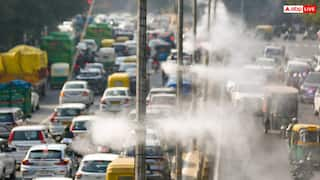Gaganyaan: ISRO To Launch First Test Development Flight Mission On October 21. Know The Timing
Gaganyaan's Test Development Flight Mission-1, also known as Test Vehicle Abort Mission-1, will be launched anytime between 7 am and 9 am IST. TV-D1 will test the functioning of the crew module.

Gaganyaan: The Indian Space Research Organisation (ISRO) will launch the Test Development Flight Mission-1 (TV-D1), also known as the Test Vehicle Abort Mission-1, on October 21, 2023. The mission will be launched anytime between 7 am and 9 am IST, from Satish Dhawan Space Centre, Sriharikota, Andhra Pradesh, ISRO said in a mission update on X (formerly Twitter).
ISRO will conduct three more test vehicle missions as part of the Gaganyaan Programme, after the maiden test vehicle development flight. The test vehicle abort mission-1 is an important mission because it will allow ISRO to test the crew module which will carry astronauts to space during the crewed missions of the Gaganyaan programme. The test vehicle development flight missions to be conducted after TV-D1 are called D2, D3, and D4, ISRO Chief S Somanath has said, news agency PTI reported. He also said that thorough tests will be conducted during the test flight sequence.
Mission Gaganyaan:
— ISRO (@isro) October 16, 2023
The TV-D1 test flight is scheduled for
🗓️October 21, 2023
🕛between 7 am and 9 am
🚩from SDSC-SHAR, Sriharikota #Gaganyaan pic.twitter.com/7NbMC4YdYD
The aim of ISRO's Gaganyaan Programme is to launch astronauts to an orbit of 400 kilometres, and bring them back safely to Earth by landing them in Indian sea waters, in order to demonstrate human spaceflight capability.
As part of the TV-D1 mission, the crew module (in which astronauts will be carried to outer space during the crewed mission) will be sent to outer space, and then recovered after splashing down in the Bay of Bengal. A diving team from the Indian Navy will use a dedicated vessel to recover the crew module.
Unlike the crew module that will carry astronauts to outer space during the crewed missions, the crew module that will be used during the test development flight mission will be unpressurised, and will not simulate a pressurised Earth-like atmospheric condition.
The size and mass of the crew module to be used for the test vehicle abort mission-1 are the same as those of the crew module that will be used during the crewed missions of the Gaganyaan programme. All the systems for the deceleration and recovery of the crew module are also present inside the vehicle.
Related Video
Southern Rising Summit 2024: How Important is Self-Awareness? Insights from Anu Aacharya | ABP LIVE
Top Headlines





































